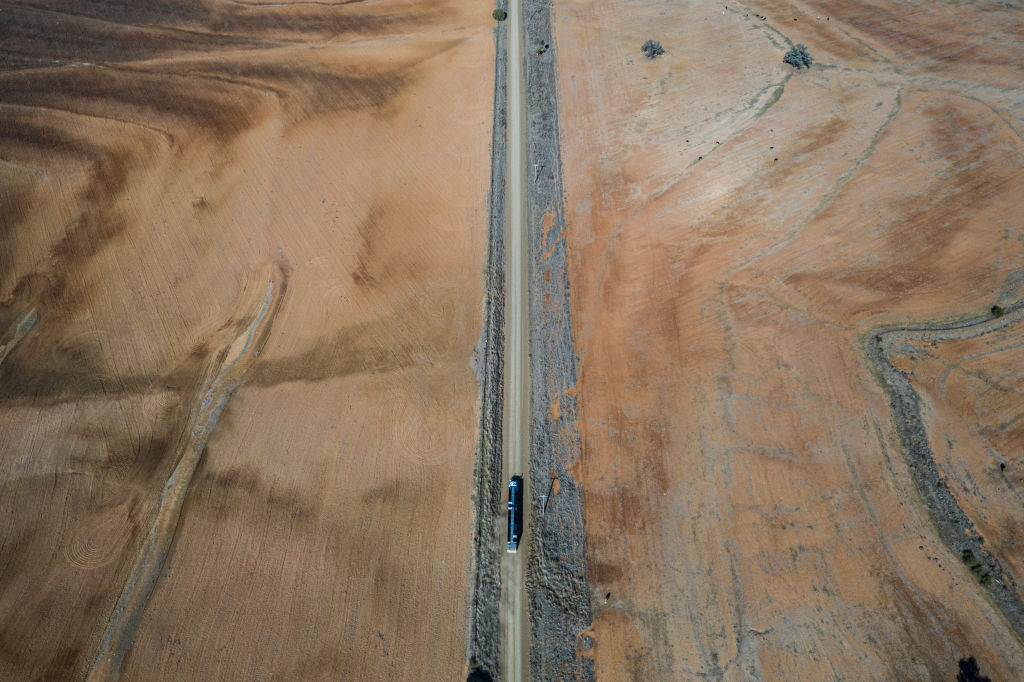National security wrap

The beat
UK police to gain access to encrypted messages
The UK and the US are expected to sign an agreement that will force US-based social media platforms to share users’ encrypted data with British police. The companies will be required to build ‘back doors’ into their messaging apps, providing police with an avenue for decrypting data to assist with their investigations into serious crimes. As part of the deal, the US and UK have agreed to not investigate each other’s nationals.
Nigerian police accused of unwarranted profiling
Nigeria’s anti-robbery police squad has been accused of targeting the country’s tech industry, profiling people with laptops, smartphones and internet connections as ‘419’ scammers, a reference to the police code for online crime. Following the harassment of a local software engineer, a crowdfunding campaign has been set up to finance a legal challenge against the police unit. Four officers have been arrested on allegations of extortion in connection with the incident.
Drones help find fugitive cave-dweller in China
Police in the Chinese province of Yonghsan used drones to locate a man who had been on the run for almost two decades. The police were acting on new information about the fugitive’s whereabouts. The drones were used to survey the difficult mountain terrain and eventually led police to the cave hideout.
Checkpoint
Germany extends border checks
Interior Minister Horst Seehofer says Germany will increase the police presence at its borders to deter migrants from entering. This follows his decision to extend random checks at the border with Austria for another six months. Despite a reduction in the number of illegal border crossings, the interior ministry says that circumstances don’t allow for the complete abolition of border checks just yet.
Sudan closes borders with Libya and CAR
Sudan has ordered the closure of its borders with Libya and the Central African Republic (CAR) after a meeting of the civilian–military sovereign council. In a statement, the body said that the closure of the borders was due to ‘the threat [Libya and the CAR] pose to the security and economy of Sudan’. Though it didn’t give details about the nature of the threats, Sudan has often complained about the trafficking of arms through its borders with both Libya and CAR, and the council says that vehicles have been illegally crossing its borders with both nations.
Bangladesh border guards kill suspected Rohingya drug smugglers
Two suspected Rohingya drug dealers were killed by border guards in the Cox’s Bazar district of Bangladesh. The two men were among a group of Rohingya refugees from Myanmar who were discovered attempting to cross a river by boat into Bangladesh. When asked to surrender, the suspects allegedly responded by opening fire, triggering a ‘shootout’. The incident comes on the heels of the Bangladeshi government’s announcement that it plans to put barbed-wire fences around Rohingya camps near the border to stop their expansion.
CT scan
Australia has enacted more counterterror laws than the US
A report in The Conversation has found the number of anti-terror laws introduced by the Australian government since September 2001 far exceeds the volume of new laws introduced by the UK, Canada and the US. Australia’s response has been described as one of ‘hyper-legislation’; at its peak, a new law was enacted every 6.7 weeks. Since Islamic State’s declaration of a caliphate five years ago in Syria, Australia has enacted 19 new laws, bringing the total to 82.
Trial of German neo-Nazis begins
The trial of eight members of Revolution Chemnitz, an alleged neo-Nazi cell accused of plotting a violent race war in the German state of Saxony, has begun amid concerns that Germany’s far-right movement is becoming more radical and violent. Chief federal prosecutor Peter Frank said that the trial would be one of the most important to date in dealing with far-right terrorism. The far-right’s surge in Saxony’s recent election saw the anti-immigrant, anti-Muslim Alternative for Germany party win 27.5% of the vote, just shy of the 32% garnered by the centrist Christian Democratic Union.
Al-Shabaab mounts simultaneous attacks in Somalia
Al-Shabaab militants simultaneously attacked a US base used to train Somali commandos and an Italian military convoy in separate attacks earlier this week. The attacks come as the militant group faces increasing pressure in the region after losing control in several key areas. Both attacks failed to inflict casualties on US and Italian forces, but in response the US conducted a self-defence airstrike that killed 10 militants.
First responder
Australian biosecurity officials are on high alert
Agriculture Minister Bridget McKenzie has said that measures are in place to prevent African swine flu from reaching Australia. The deadly virus, which has swept across Asia in recent months, has reportedly reached Timor-Leste. Biosecurity measures have been put in place at international airports and ports, monitoring everything coming in from countries affected by the virus. Sniffer dogs will be deployed to the Northern Territory to screen passengers flying directly from Timor-Leste to Darwin.
Drought-stricken regions won’t be classified as natural disaster zones
Opposition leader Anthony Albanese backed farmers’ calls to have some drought-affected areas in Australia declared natural disaster zones. However, the drought and emergency management minister, David Littleproud, has rejected the idea, saying that the slowly encroaching impact of drought affects communities differently from natural disasters like fires or cyclones.
Yellow fever outbreak in Nigeria
The Nigerian Centre for Disease Control has confirmed an outbreak of yellow fever with 27 confirmed cases in Bauchi state, and additional cases in four other states. The World Health Organization recently released a report stating that 84 suspected and seven confirmed yellow fever cases have been reported in Ebonyi state. More than 2,000 suspected yellow fever cases have been reported in Nigeria so far this year. Low vaccination coverage and documentation are key factors for the outbreak. The WHO is implementing a four-year mass vaccination campaign.